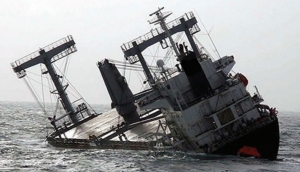


(Posted on 20/07/20)
Large shipping losses are at a record low having fallen by over 20% year-on-year, according to marine insurer Allianz Global Corporate & Specialty SE’s (AGCS) Safety & Shipping Review 2020. However, the coronavirus crisis could endanger the long-term safety improvements in the shipping industry for 2020 and beyond, as difficult operating conditions and a sharp economic downturn present a unique set of challenges.
“Coronavirus has struck at a difficult time for the maritime industry as it seeks to reduce its emissions, navigates issues such as climate change, political risks and piracy, and deals with ongoing problems such as fires on vessels,” says Baptiste Ossena, Global Product Leader Hull Insurance, AGCS. “Now the sector also faces the task of operating in a very different world, with the uncertain public health and economic implications of the pandemic.”
The annual AGCS study analyzes reported shipping losses over 100 gross tons (GT) and also identifies 10 challenges of the coronavirus crisis for the shipping industry which could impact safety and risk management. In 2019, 41 total losses of vessels were reported around the world, down from 53 12 months earlier. This represents an approximate 70% decline over 10 years and is a result of sustained efforts in the areas of regulation, training and technological advancement, among others. More than 950 shipping losses have been reported since the start of 2010.
The shipping industry has continued to operate through the pandemic, despite disruption at ports and to crew changes. While any reduction in sailings due to coronavirus restrictions could see loss activity fall in the interim, the report highlights 10 challenges that could heighten risks. Among these are:
“Ship-owners also face additional cost pressures from a downturn in the economy and trade,” says Captain Rahul Khanna, Global Head of Marine Risk Consulting at AGCS. “We know from past downturns that crew and maintenance budgets are among the first areas that can be cut and this can impact the safe operations of vessels and machinery, potentially causing damage or breakdown, which in turn can lead to groundings or collisions. It is crucial that safety and maintenance standards are not impacted by any downturn.”
According to the report, the South China, Indochina, Indonesia and Philippines maritime region remains the top loss location with 12 vessels in 2019 and 228 vessels over the past decade – one in four of all losses. High levels of trade, busy shipping lanes, older fleets, typhoon exposure, and safety issues on some domestic ferry routes are contributing factors. However, in 2019, losses declined for the second successive year. The Gulf of Mexico (4) and the West African Coast (3) rank second and third.
Cargo ships (15) accounted for more than a third of vessels lost in the past year, while foundered (sunk/submerged) was the main cause of all total losses, accounting for three in four (31). Bad weather accounted for one in five losses.
AtoB@C Shipping, a subsidiary of ESL Shipping, has announced the successful delivery of Fleximar, the... Read more
Western Bulk, together with reputable Norwegian partners A/S J. Ludwig Mowinckels Rederi, Premium Maritime... Read more
Pacific Basin Shipping Limited, one of the world’s leading dry bulk shipping companies, has announced... Read more
Columbia Group anticipates a period of strong expansion as an increasing number of international shipowners... Read more
Norse?Ship Management has expanded its use of Smart Ship Hub’s high frequency sensor data and... Read more
As the maritime industry gears up to welcome the IMO’s STCW bullying and harassment training amendments... Read more
NORDEN has acquired the cargo activities of Taylor Maritime in Southern Africa (previously operated... Read more
Philippos Ioulianou, Managing Director of EmissionLink, has warned the IMO’s decision to delay... Read more
VIKAND has highlighted the need for cultural change in the maritime sector as reports of bullying, harassment... Read more
The maritime industry is experiencing a period of significant transformation, driven by rapidly evolving... Read more